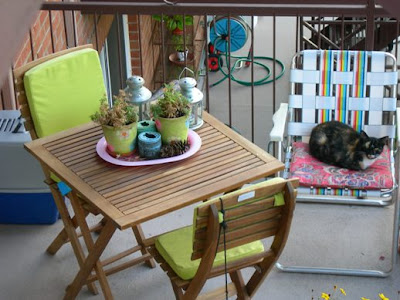 Dean and I are on day 4 of our vacation in Manitoba. So far, the days have been full. Hours of travel time, a visit to the farmer's market, shopping for school clothes, reading stories and playing "hide Mr. Lion" with my niece, a brief overnight trip to North Dakota, and much, oh much too much, eating. This afternoon as we were driving into Winnipeg, I asked myself, "Is this really a vacation?" Yes, it is a change of pace, and it is good to see the family, but the list of activities to do and people to see is getting longer, and there are several tasks that I have to keep on top of for school, not to mention some reading and writing that I can't neglect.
Dean and I are on day 4 of our vacation in Manitoba. So far, the days have been full. Hours of travel time, a visit to the farmer's market, shopping for school clothes, reading stories and playing "hide Mr. Lion" with my niece, a brief overnight trip to North Dakota, and much, oh much too much, eating. This afternoon as we were driving into Winnipeg, I asked myself, "Is this really a vacation?" Yes, it is a change of pace, and it is good to see the family, but the list of activities to do and people to see is getting longer, and there are several tasks that I have to keep on top of for school, not to mention some reading and writing that I can't neglect.The thing that probably bothers me the most is that I am not as joyful, energetic, and passionate about life as I want to be. A vacation sounds exactly like what I need, and yet, I am finding that rest is one of the hardest things to do really well. Spending time with a 2-year-old makes one realise how young we start to resist the notion of rest. Why is that? There is no doubt that we all need rest (it is built into our physiology, how handy!), but what is it, really? How do I know if I have rested? How do I know if I have sabbathed? What should be the quality that I come away with after a vacation? After a day of rest? Here are some thoughts on the matter, inspired and provoked by Genesis 1-2.
1. Rest is not primarily a cessation of work, nor a change of pace or scenery, nor a much-needed break from a busy life. It is more than a necessary pause just because I am tired. It is not doing nothing (sorry about the double negative). It is more than getting away from it all and forgetting about the pressures of life for a bit. It is so much more than playing and having fun.
1. Rest is not primarily a cessation of work, nor a change of pace or scenery, nor a much-needed break from a busy life. It is more than a necessary pause just because I am tired. It is not doing nothing (sorry about the double negative). It is more than getting away from it all and forgetting about the pressures of life for a bit. It is so much more than playing and having fun.
2. Rest is taking the time to celebrate what is good in my life and to enjoy the creative work I have done, without criticism and without speculating about the future. If I can't find anything to enjoy in what I have done, can't refrain from criticising it, or feel the constant urge to tweak the 5-year plan, I am not at rest.
3. Rest is being quiet (God didn't speak on the seventh day). If I feel the need to add my words, I am not at rest.
4. Rest never has anything to report. It will not be evaluated.
5. Rest is like admiring a picture after it has been painted. The true value is only found by those who take the time to see and absorb the beauty. Rest is looking, listening, inhaling, smelling, touching, tasting, and seeing that God is good.
6. Rest is a blessing; it increases me, grows me, matures me, and strengthens me.
7. Rest is holy; it sets me apart as belonging to God, and it requires surrender. I can fight it (as we often fight off sleep), but blessed are those who step away from their self-occupation and surrender to it.
In all honestly, I don't think I have rested much at all this past year, but I am working on changing that. And the first thing I have to realise is that I can't really work on it. I have to surrender to it.
Come, blessed Rest, Lord of the Sabbath, and sabbath within me.
This is a picture of the neighbour's cat, in repose on his balcony.
Comments